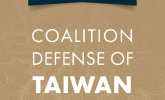Iran Update, March 14, 2023
March 14, 2023 - ISW Press
The Iranian government is prioritizing mandatory veiling amidst poor economic conditions, recent student poisonings, and heightened protest activity. President Ebrahim Raisi discussed protecting “the culture of chastity and hijab in society” during a speech commemorating Martyrs’ Day on March 14. Raisi reiterated that Iran’s external enemies are responsible for the recent student poisonings and claimed that Iran can overcome its problems by “relying on God.” The Parliamentary Cultural Committee separately published a report on chastity and hijab on March 14 emphasizing using an “indirect and intelligent approach” to enforce veiling as opposed to “physical confrontation.” The Cultural Committee added that it held meetings with the Law Enforcement Command (LEC) to “review and follow up" on this organization’s “problems.” The government’s “intelligent” approach involves--among other measures--placing responsibility for hijab enforcement on individuals such as shopkeepers as well as using facial recognition technology to identify unveiled women. This approach—despite government claims—is, in fact, confrontational. While security forces may not physically confront unveiled women, using facial recognition technology violates their privacy, and the penalties the regime has discussed levying can prompt confrontations of various sorts. Iranian authorities have additionally shut down many stores, pharmacies, and restaurants where the owners of these spaces neglected to enforce veiling among female customers in recent months. Recent reports by Bloomberg and NPR also suggest that a growing number of Iranian women in urban centers are defying the mandatory hijab law on a daily basis. If this trend continues, the regime may have to decide in the near future whether to confront this outwardly defiant segment of the population.









